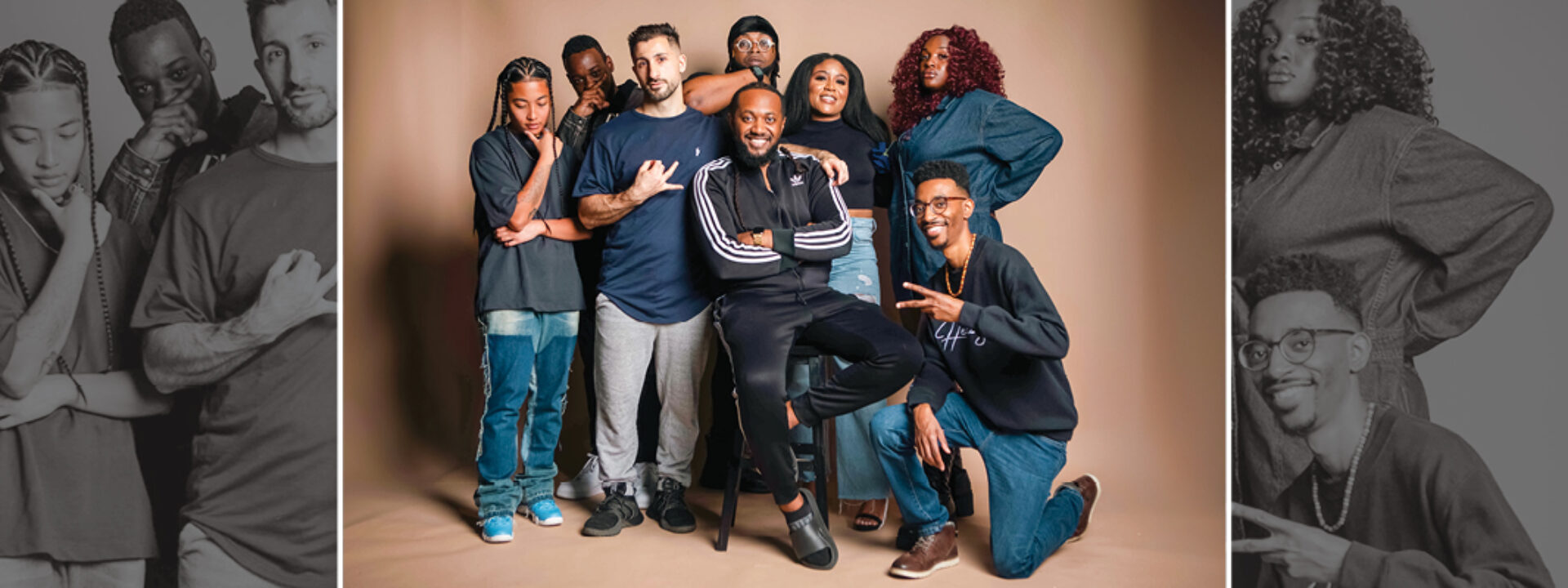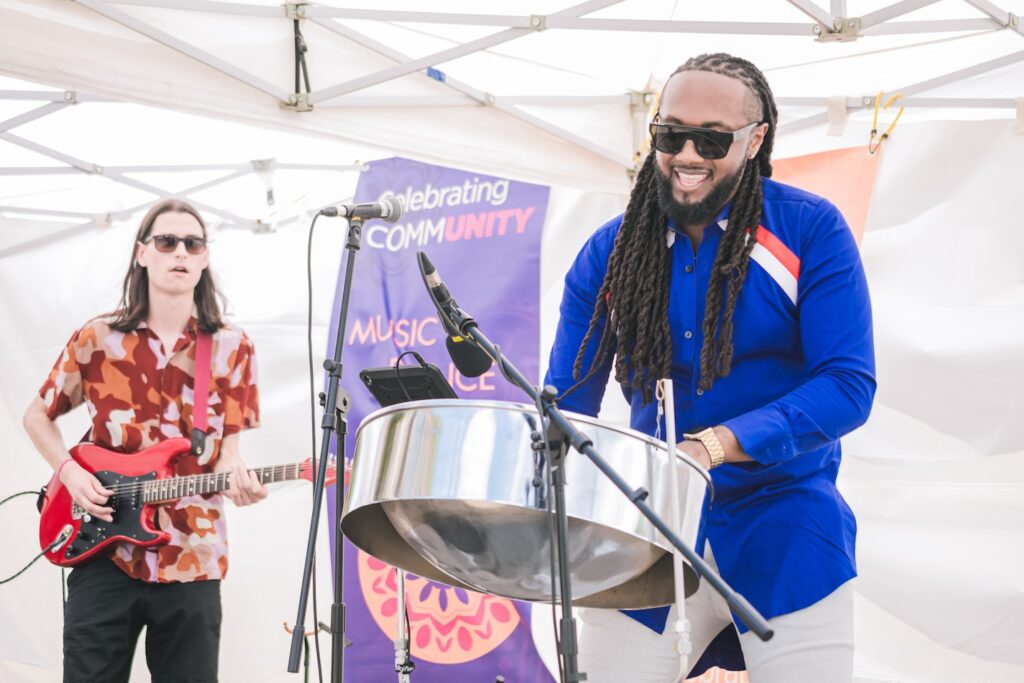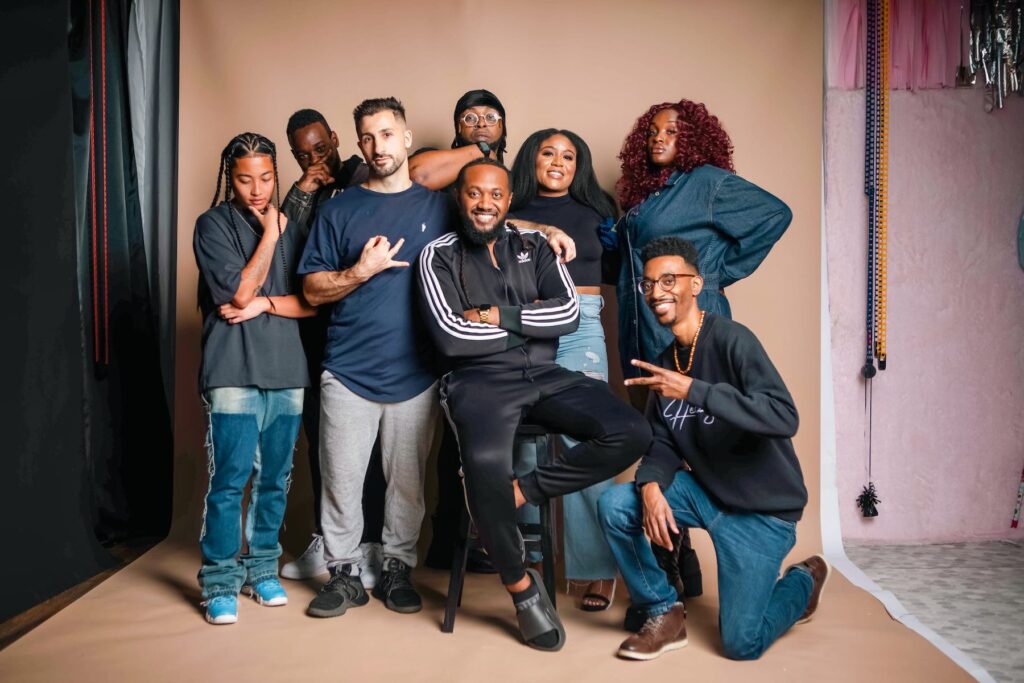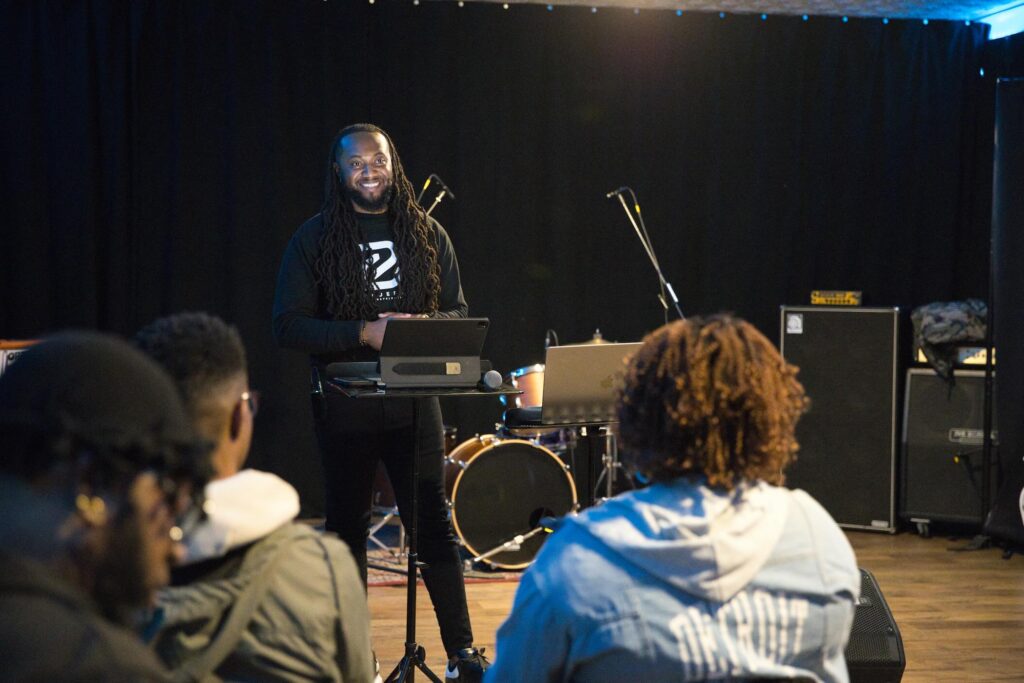Sharing a musical Blueprint

Dejehan Hamilton is using his knowledge and experience to lift up other racialized musicians and help them navigate the industry.
It’s well known that music is a tough way to make a living, so a 12-week program called The Blueprint is aiming to make the road a little easier for racialized artists.
The Tune In Foundation has now graduated two cohorts of students – 18 altogether – who learned from a roster of mentors in the industry.
Dejehan Hamilton is the face and the knowledge behind the Tune In Foundation. He’s a veteran steel pan performer under the stage name Luckystickz but also a music management graduate who wants to guide other musicians setting out on a career.
“I’ve learned what to do and what not to do and I love sharing that with others,” he says. “So many artists don’t want to deal with the business side of the business but they need to know it.”
Hamilton is a multi-channel artist. He’s a performing drummer, a songwriter, a motivational speaker, an author, an emcee, a consultant, and runs a media production company called Tune In Media. He says people think the job of a musician is to show up to performances but there is so much more behind the scenes – networking and hustling for gigs, rehearsal and preparation, getting contracts signed, and managing schedules among them.
Hamilton found his passion in sharing his knowledge and supporting BIPOC artists through the Tune In Foundation, he says. Its programs include The Plug, a program to empower diverse high school students through a community volunteering program, a bursary through the John C. Holland Awards, and the Talk To Me Nice (TTMN) Conference, which aims to amplify the voices and talents of racialized artists.
Hamilton brings musical presentations to local and youth empowerment workshops to combat problems such as bullying, low self-esteem, and lack of educational success to underserved inner-city schools. Tune In Foundation also works with Global Youth Groove to deliver workshops and musical instruments to children in Kenya.
Hamilton is the first and only Canadian steel pannist to attend and graduate from the Berklee College of Music in Boston on scholarship, earning a music management degree. In his pursuit of a career as a solo artist, which included studying at Mohawk College, he has built a large network of industry people that he calls upon for The Blueprint.

Hamilton was born and raised in North End Hamilton. He was raised by a single mother in a low-income household. Music was both his refuge and his opportunity. He started playing in church at five years old and went on to play in the Hamilton Youth Steel Orchestra.
Hamilton, who is dynamic and charismatic and believes success is rooted in mindset, has found important community partners to support his work. Main Stage is a symbiotic partner with the Tune In Foundation. Hamilton connects to aspiring musicians through the venue’s open jam nights, Blueprint participants take advantage of fully equipped music studios, and use it as a stage for its hART Music Series concerts.
For Main Stage, graduates of The Blueprint can turn into future tenants.
Hamilton built The Blueprint – offered free to participants – after securing the Hamilton Arts Council’s support for the program. Along with deep dives into what it takes to succeed in the business and marketing lives of a professional musician, it also includes a styling and aesthetics session, vocal and stage performance coaching, a professional photo shoot, a professional recording of a song and a live performance opportunity. That comes after industry pros evaluate each artist and advise what they need to work on.
R&B electronic performer CJ Cruicks says The Blueprint was “eye opening,” even though he’s been a professional musician since he was 14. “There have been a lot of things I thought I knew that I didn’t.”
Paying attention to the business side is something many musicians are intimidated by, he says.
“You can’t just stand in front of a mic and sing. You can be talented as hell but it’s so much more than that.”
Cruicks, whose influences include funk, soul, gospel and old-school reggae, says the program has given him a community of peers that are willing to help each other.
“I just had to get over myself and realize I don’t have to do it alone.”
Getting down to business
Blueprint participants get exposure to mentors, including music executives, fellow artists, brand and marketing experts and recording engineers. Each session is held in a studio at the Main Stage Rehearsal Studios. When it’s over, four graduates will be chosen to perform at the Hamilton Arts Council’s hART Music Series and one will get to take the stage at Sonic Unyon’s Fresh Up Festival.
But first up is business.
There is a lot to learn – HST numbers, structuring and registering a business, and protecting your brand and work – and that can seem overwhelming, Hamilton tells participants during week 7. It’s important to get beyond “analysis paralysis,” and he provides a step-by-step guide.
Hamilton then dives into using social media and the importance of an artist presenting themselves online in a way that will appeal to those who might book gigs and those who would come to shows.

“One thing I would stress is that you don’t own anything on social media. TikTok could be banned in Canada next week and it’s just gone. It’s still important to have a domain that you own. I own my domains, luckystickz.com and dejehanhamilton.com and I funnel everything through my website.”
In order to be fully prepared, Hamilton’s booking page asks for details of the event and the space, including duration, setup time, logistics of the stage setup, and even how he should dress. He also asks how the booker heard of him so he can track referrals.
He told the group that they will be asked to perform at venues or events in exchange for “exposure” or a meal. It’s a constant battle. He said he will occasionally perform for free or a lower fee if he thinks potential business opportunities are strong.
“But I choose that. When I am told that the exposure will be good for me, my answer is: ‘Too much exposure is bad for you. It causes skin cancer.’”
When he’s asked about rates to charge, Hamilton says he sets his performance fee depending on whether a band is required, the amount of travel needed and the type of event. Sometimes it’s just helpful to ask what the budget is upfront and come up with what that provides, he says.
‘Your calling card’
To land gigs, Hamilton recommended his students get on the Hamilton Arts Council’s theartycrowd.ca, develop a LinkedIn profile and build an email list. These might not be top of mind tasks for young musicians.
“Emailing may seem old-school but it gives you a connection. Emailing is gold.”
It may also seem old-fashioned, but Hamilton is a big believer in email etiquette: greetings, proper grammar and spelling, and no text lingo. Keep it professional, he says, because you are always seeking your next job.
“Taking care of basic things shows you are ready for an opportunity.”
He also suggests attending events, introducing yourself to organizers and offering to play next time. Stop in at venues and talk to the booking manager.

And every time you get to play, he says, kill it.
“That’s your calling card. I get a lot of gigs because someone has seen me play.”
Other advice: Have an electronic artist package ready to go with a bio, professional photos and contact information; send thank you emails to booking agents, promoters and event organizers; and always put together behind-the-scenes videos of performances to send out on social media.
“If there is an event or venue you really want to play, ask that booker or promoter to your events. It doesn’t matter if they come, you are showing you are in demand.”
And if you do get a booking inquiry, respond as fast as possible. That shows professionalism but also increases your chances of landing that gig.
A newcomer’s perspective
Jaye Woods discovered The Blueprint after moving to Hamilton from Mississauga in 2022. He has been making music for 14 years under the stage name Orijin, but took a bit of a pause for a few years before arriving in the city.
“So arriving in Hamilton, I came with just an openness to checking out opportunities to be more engaged in creating music and finding creative community.”
He connected with the Shaky Knees Club, a collective of local songwriters that meets monthly for workshops, and regularly puts on concerts and events for emerging and established songwriters. From there, he zeroed in on The Blueprint.
A therapist by profession, Woods creates hip hop that centres connection, compassion, and community. He started performing at open mics and talent shows and from there, met a producer and manager and played shows around the GTA. He produced five full-length albums, headlined two Ontario tours, played Canadian Music Week in 2012 and helped to create a small indie label of rappers with positive messaging in their music.
He also earned a nomination for the Covenant Award for Best Rap Album in 2018.

Photo: Sheldon Steele, Zary Photography
But a career change for his manager and then the pandemic halted that momentum.
“I didn't have the skills and the know-how from the business side of things, and so things just really tapered down, and so it's really been the last year that I've made a commitment to say I want to reinvigorate my artistry.”
He says he’s embarking with a matured sound and a new message that is linked to his work with adults who are negotiating childhood trauma. The Blueprint has prepared him to handle the business and administrative tasks of being a musician and that will make him a more well-rounded artist, Woods says.
“People show up each week, I sense, with a readiness to really engage, to contribute and to learn, and also that all happens in an environment that feels like a warm community, which I think is a really hard balance to create, but I think Blueprint does it well.”
Other artist development programs offer this kind of teaching and resources, but they cost $10,000, says Woods. He’s grateful for access to professionals like Hamilton and all the other pros he brings in.
“I really cherish having access to something like this. And as somebody who's new to Hamilton, I see this, and I just tell myself, I would never see this in Toronto.”
Woods says graduates of The Blueprint have formed their own community, a microcosm of his new hometown, which embraces and supports emerging artists in a way he hasn’t seen before.
“People show up to each other's shows. People show up to events where they don't even know the artists playing, just to support something local.”












